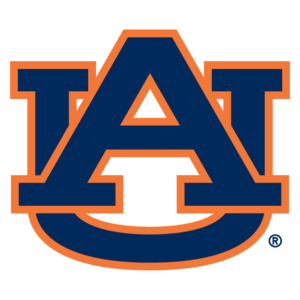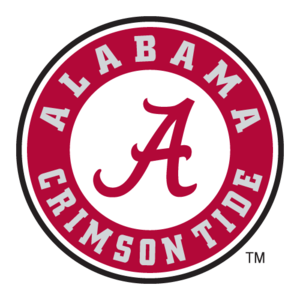The full women’s NCAA Tournament bracket has been set with South Carolina as the No. 1 overall seed.
(Editor’s note: This is part of the Bracket Central Series, an inside look at the run-up to the men’s and women’s NCAA Tournaments, along with analysis and picks during the tournaments.)
As Conference tournament week winds down, the number of automatic qualifiers and at-large bids continue to dwindle. Though the bids won’t be doled out until Selection Sunday, looking at every resume case by case gives us a pretty good idea of who’s in, who’s out and a small gray area that’s up in the air: The Bubble.
Advertisement
Mississippi State provides us one of the most significant cases to delve into when looking at how the selection committee makes decisions, and in turn, how I build the bracket with that in mind.
Get your women’s March Madness printable bracket
I currently have the Bulldogs slated as one of the first teams projected outside the tournament, and they’re one of the teams that has tested my understanding of what the committee is looking at the most. Why? Let me explain.
| Last four in | First four out | Next four out | Last four byes |
|---|---|---|---|
Marquette | Mississippi State | Villanova | UNLV |
Texas A&M | Columbia | George Mason | Michigan |
Arizona | Washington State | VCU | Vanderbilt |
Miami | Penn State | Washington | Auburn |
Multi-bid conferences
| Conference | Bids |
|---|---|
ACC | 9 |
SEC | 8 |
Big Ten | 7 |
Big 12 | 7 |
Pac-12 | 7 |
Big East | 3 |
Ivy | 2 |
What’s the NET say about Mississippi State’s chances?
The NET is simultaneously important and not that meaningful. It’s a nice tool, a metric and gauge that can be a good starting point for comparison. However, a team’s NET is highly unlikely to be used significantly for whether a team makes the field. The NET is influenced by strength of schedule, margin of victory or loss, and where teams win or lose (home floor, away or neutral site).
Per the NCAA website: “It is not a deciding factor. It is not going to determine if a team is in or out of the bracket. It is an organizational piece for the committee.”
Mississippi State finished the season 21-11 and 47th in the NET, sandwiched between TCU and Michigan, respectively. Though this does not mean the Bulldogs are the “47th best team” in the country, it’s a good first step of looking where it slots. The Bulldogs are a few spots ahead of the top mid-majors that have locked up automatic qualifying spots (Richmond and Green Bay), and around the same area as other solid teams in power conferences that didn’t finish at the top of their leagues (Washington, Michigan and Miami).
How much should the Bulldogs win against LSU matter?
The key aspect is quality wins, which is exactly what it sounds like: did you beat good teams? Whenever I’m distilling it, it’s typically based on where I’m seeding; if I’m on the No. 2 or No. 3 seed line, I’m looking heavily at how well you’ve performed in both wins and losses against top competition, and that will generally be more skewed to roughly the top 25 teams.
Advertisement
For reference, if you lost to top teams, how did you lose? Did you lose in a game that went buzzer to buzzer, or did you lose by 18? Did you perform better in the next matchup if there was one?
Through that lens, Mississippi State’s home win against LSU was substantial, the feeling at the time that the Bulldogs were stamped as a tournament team once they pulled that off. Beating a top-10 opponent is about as quality of a win as you can get. But overall strength of schedule must also be considered. Mississippi State’s next best win was against Ole Miss in January (a strong win), and then it gets a little dicier after that. The Bulldogs finished 264th in nonconference strength of schedule. Though they finished with a 13-2 record outside of conference, there isn’t another marquee win that separates them from the pack, and dropping their ACC/SEC Challenge matchup with Miami didn’t help.
After looking at quality wins, I look at quality games, gauging how a team played against the best opposition.
As the season progressed, I found that margin of loss is probably one of the biggest influences in how teams are seeded. Especially once we hit the last few weeks of conference play, a bad loss (more than 10 points) had a larger impact in the Top 16 reveals than having a good win.
And that’s not just with respect to the NET, but when factoring in sheer competitiveness, how well a team compares and fights against/with the highest level is key.
In Mississippi State’s lone contest against South Carolina, it was competitive for stretches, but the Bulldogs wound up losing by 19. Sometimes a team can benefit from playing the best teams only once in conference and winning.. Think of Notre Dame’s first game with NC State, largely a one-sided affair in favor of the Wolfpack, and the ACC championship game that not only dampened that earlier loss, but also propelled the Irish to a higher seed.
Advertisement
Late-season results can play a significant role in how the committee seeds teams. If I was seeding out the entire tournament strictly by the body of work on the season without respect to how team’s performed the last few weeks, there would be differences across the board. That’s been the hardest part for me in trying to align with the committee, and Mississippi State is the team perhaps most impacted by this.
The Bulldogs are on a 1-6 streak heading into Selection Sunday. Losing an overtime road game to a strong Ole Miss team shouldn’t drop them. Losing to Kentucky is killer. Obviously, losses are inevitable when playing in a power conference, as every team has talent and has to be taken seriously. But, Kentucky is 12-20, winning only four games in SEC play, a game you can’t afford to drop, especially late, as the Bulldogs.
If the Bulldogs had lost to Kentucky and hit a losing skid before beating LSU on Jan. 29 but then finished strong in February with some noise in the SEC tournament, I believe they’d have a much better case with the committee.
But take a team like Michigan that had similar big wins (beating Ohio State) and a slightly stronger nonconference schedule but also went 3-4 to close the year. The Wolverines have bounced around the bubble. But by making their run late, with a win over Indiana in the Big Ten tournament, is a key difference-maker.
Head-to-head is the last key part that can significantly impact teams on the bubble, including Mississippi State. Vanderbilt, Auburn and Texas A&M are in that No. 10 seed to bubble zone. Texas A&M beat Mississippi State convincingly, and with similar resumes, the Aggies could have an edge on Mississippi State if the committee is deciding which gets in the tournament. Auburn and Vanderbilt won their lone games against State, and vitally as well, Miami won its nonconference meeting against the Bulldogs.
Maybe that LSU game is enough forMississippi State to earn an invitation. But based on how the committee has presented its cases, it seems Mississippi State will be on the outside looking in.
There are a multitude of ways to view and analyze every seed and case, and based on how the Top 16 reveals played out, the committee takes everything case by case rather than a one-size-fits-all approach. It’s all about building the most competitive bracket based on fair judgements to invite the best teams and balance each region.
Advertisement
Others on the bubble
• Bubble teams hoping to snag an at large bid can breathe a sigh of relief after the Mountain West championship. UNLV and San Diego State were tied at the half before UNLV ran away with it in the fourth quarter. This is now the second straight year that Lindy La Rocque and the Rebels have won 30 games. They were a lock for the tournament regardless of the championship outcome, but they will likely earn their highest seed in La Rocque’s tenure, currently slotted with a No. 10 seed. Blowout nonconference wins over Oklahoma and Arizona set the tone for the Rebels early in the year, and they backed up their early play with just one MWC loss.
• For the first time under third year coach Joddie Gleason, and first time since 1987, the Eastern Washington Eagles are headed to the NCAA Tournament. It’s been a banner season in Cheney, Wash., as the Eagles have set a program record with 29 wins this season.
• The American Athletic Conference was competitive all season, with 10 of 14 teams finishing .500 or better in conference. There was a three-way tie for first place, a tie for four, and a five-way tie for sixth. That led to an absolutely wild conference tournament, including a triple overtime game and a championship meeting between 10th-seeded Rice and ninth-seeded Eastern Carolina. Rice won handily on Wednesday, earning its first foray into March Madness under Lindsay Edmonds.
The Bracket Central series is part of a partnership with E*TRADE.
The Athletic maintains full editorial independence. Partners have no control over or input into the reporting or editing process and do not review stories before publication.
(Photo of JerKaila Jordan: Eakin Howard / Getty Images)





































































